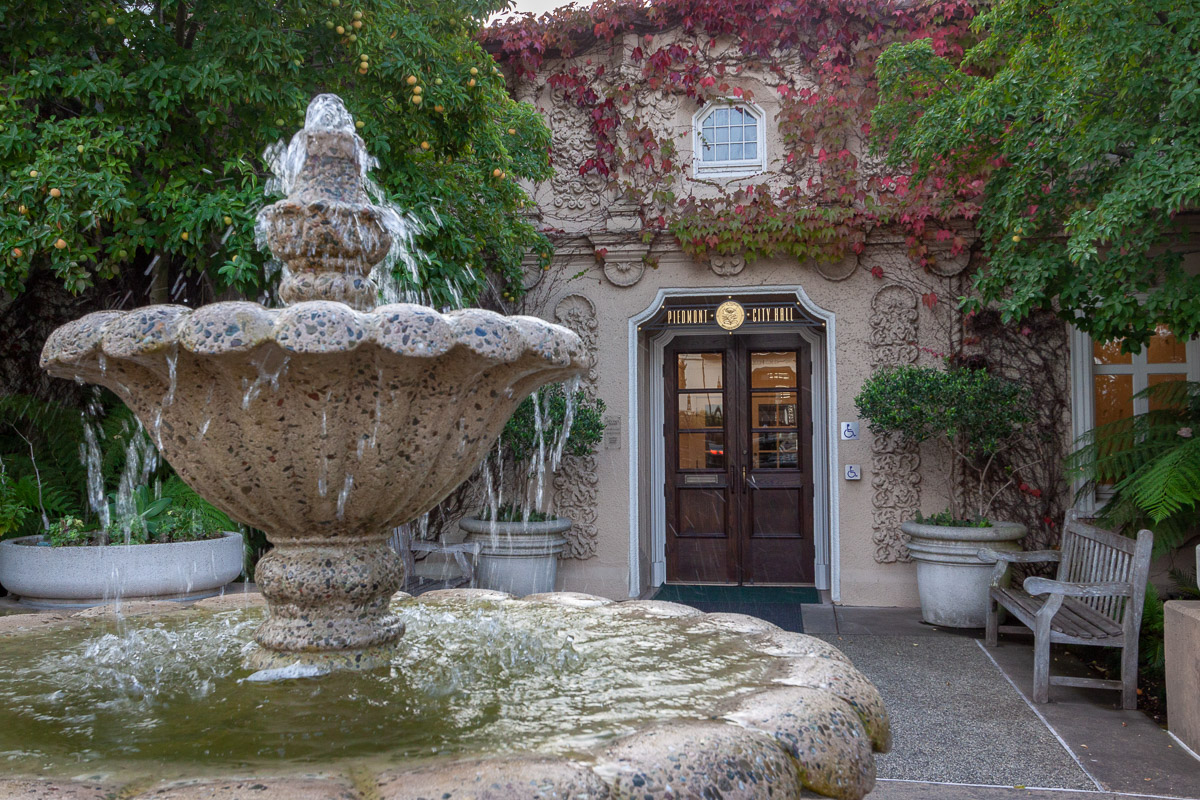Because most of this city’s revenue base is related to its residential tax income, and not from sales taxes or tourism, Piedmont is in a better position to withstand the COVID-19-related firestorm that has wracked most city and county budgets regionally, local finance officials said Tuesday night.
They said current projections are for the city to have a positive General Fund operating net income of $2.5 million at the end of the fiscal year in June (before capital transfers), even in the current environment.
“We have been insulated from severe damage by the absence of reliance on sales taxes and transit occupancy taxes” paid by guests of hotels and motels, City Administrator Sara Lillevand told the City Council Tuesday night before an informational report on the mid-(fiscal)-year state of city finances.
Piedmont Finance Director Michael Szczech said the city’s General Fund remains strong, even in this COVID-19 era, with revenues exceeding expenses. A key factor here, he said, has been the strong local housing market. A 50 percent increase in housing sales in Piedmont over the first half of the 2020-2021 fiscal year over the same period a year before brought higher-than-expected real property transfer tax receipts ($1.7 million), Szczech said.
Other revenue increases, he said, were seen in mutual aid revenue for helping fight state wildfires ($500,000), increased building permits and planning related fee activity ($200,000), property tax receipts ($200,000) and other various taxes ($200,000). Those increases were partly offset by a decline in fees collected for recreation programs and facility rentals ($400,000) and for ambulance service ($100,000).
The decrease in expenditures, Szczech told the council, is mostly due to lower recreation-related expenses — including contract program and personnel costs — brought about by the continued decline in recreation programs being offered and closure of rental facilities in the current COVID-19 era.
Overall revenue from all city rec programs is forecast to fall about $238,000 short of budget.
Revenue from facility rentals is projected to be approximately $20,000 this fiscal year, about $175,000 less than originally budgeted. The original 2020-2021 budget, he said, assumed the rental facilities would be opened for business by January; Szczech said the new assumption is that the facilities will remain closed at least through June.
If these welcome financial trends continue, the city may be able to set aside some of that money for several needed expenses, including to help shrink a longstanding backlog of city maintenance needs, more investment in bringing the city’s technology systems up to modern standards, and addressing the city’s unfunded liabilities (future pension obligations).
Councilmembers Jen Cavenaugh and Betsy Smegal Andersen said they appreciate any added funds to maintenance needs, including streets and sidewalks. But both said any such boost won’t be nearly enough to do all of that work that needs to be done.
In any event, both Cavenaugh and Andersen said the city’s fiscal prudence over the long term also has helped the city survive COVID-19 relatively unscathed to this point.
“I’m grateful for the conservative budgeting that has left us in such good shape,” Cavenaugh said.
Benoit tapped to help with pool project
Former Piedmont City Administrator Paul Benoit has agreed to help provide “special assistance” to the city regarding the Measure UU/community swimming pool project.
The council voted 4-0 Tuesday night (with Mayor Teddy Gray King absent) to pay Benoit $111 an hour — with no benefits — to help get work on the pool started. He will work a maximum of 960 hours for the city.
Among his duties, Lillevand said, will be to help hire a design team and organize a steering committee and bond oversight committee. He will not “oversee” the pool project as such, she added; Andersen said Benoit will fill more of a “midwife role” with the project.
Measure UU calls for authorizing the city to issue up to $19.5 million in general obligation bonds to finance construction of a new city swimming pool. It passed with 68.47 percent voter approval.
Benoit served as Piedmont’s city administrator for five years before his June 2019 retirement.
Tuesday night, he told the City Council he’s leading a happy and busy retirement. He wasn’t looking for more to do.
“I really love Piedmont, and this (pool) is a great project,” he said.
In addition to being familiar with Piedmont and the pool project, Benoit has overseen large capital projects in Alameda and in Astoria, Oregon. Lillevand said Piedmont can use that sort of expertise with its first-ever major capital bond project.
“We do not have a ready playbook to follow,” she said.
Contact Sam Richards at sam.richards4344@gmail.com
